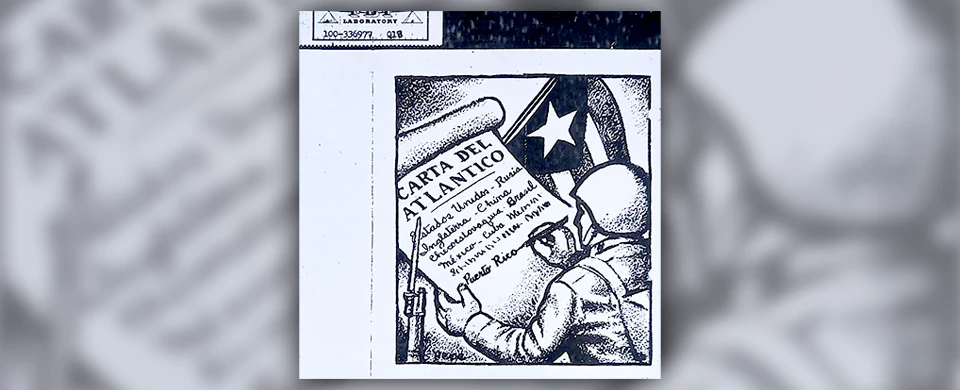Puerto Rico: when a foreign power invades and doesn’t leave
In 1898, US forces invaded Puerto Rico – an island the size of Jamaica – and annexed it from Spain. 125 years later, they are still there.
But the US is facing renewed opposition to its rule with the emergence of movement known as ‘Alianza Pais’. One of its founders, Javier Hernandez, says: “Pro-sovereignty Puerto Ricans and their allies in the U.S. want to end colonial rule and desire a viable relationship with the U.S. based on equality, respect, friendship, cooperation, and mutual interests; not colonial servitude nor political/cultural subordination inherent in annexation.”
Opposition to US rule has in the past been brutally suppressed. The 1930s saw an upsurge in support for independence that was met with the conviction and imprisonment of its leadership for ‘sedition’. The US Governor’s attempt to prevent a subsequent protest march saw police open fire on unarmed nationalists, killing 19 of them in what became known as the Ponce Massacre.
The outcry that followed prompted President Roosevelt to appoint Puerto Rico’s first civilian governor, Rexford Tugwell, in 1941. In the same year, the US and Britain signed the Atlantic Charter, which promised a post-war settlement in which colonies would have the right to self-determination.
We will never know whether or not Roosevelt would have honoured this pledge in relation to Puerto Rico because he died just before the war ended. His successor, Truman, didn’t: he vetoed legislation that would have given Puerto Ricans a chance to vote on independence.
Faced with that, and with the threat of a punitive independence settlement, the island’s pre-eminent political leader, Munoz Marin, abandoned his pro-independence stance and struck a controversial deal with Washington to gain the very limited form of self-government – known as ‘Commonwealth’ status – that Puerto Rico has today.
This came with Puerto Rico’s version of McCarthyism – the introduction in 1948 of what became known as the Gag Law, which made displays of support for independence a crime. The Gag Law became unworkable and was eventually repealed but not before it had been used for nine years to suppress opposition, including for the arrest of Nationalists and Communists in 1954 simply for belonging to their respective parties.
The suppression of dissent in Puerto Rico was led by the FBI, which set up its operation on the island in 1935. In 1944, FBI agents in San Juan were alarmed by pro-independence cartoons appearing in Puerto Rican publications signed ‘Pepe’ and ‘Diego Munoz’ and sent them to the Bureau’s laboratory in Washington so that experts could compare the signatures with illicitly obtained samples of the handwriting of my father, Brandon Howell. The tests were inconclusive but evidence from informers confirmed their suspicions and led to him being blacklisted as a ‘subversive’.
The cartoon posted here (with the FBI Laboratory stamp partially shown) depicts a soldier, representing the 50,000 plus Puerto Ricans conscripted into the US army in World War 2, adding Puerto Rico’s name to the Atlantic Charter. It’s from ‘La Voz de la CGT’, the newspaper of Puerto Rico’s trade union federation.
This month, I will be visiting Puerto Rico to find out more.
Steve Howell
Steve is the author of two novels, Over The Line and Collateral Damage, and a book on the 2017 General Election, Game Changer.
Order a paperback copy of his latest novel, Collateral Damage, for the special offer of £8.00 including UK post and packing. ORDER NOW
Order a Kindle version of Collateral Damage at £2.99. ORDER NOW

